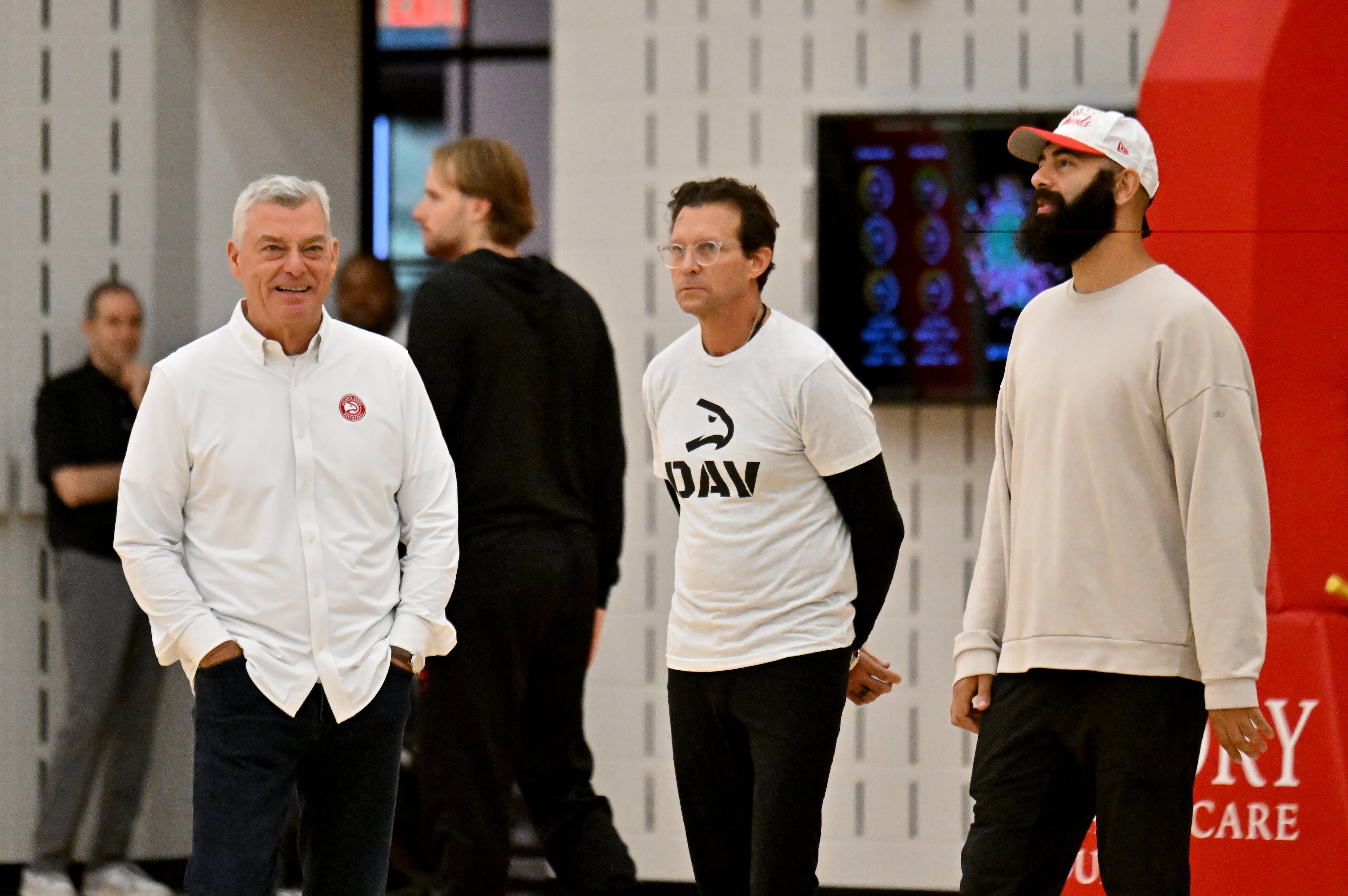Improvement for Hawks could be tough task
In some ways the scene at Philips Arena on Thursday was familiar for the Hawks.
For the third consecutive season they bowed out of the Eastern Conference semifinals with a lopsided home loss. Their first berth in the Eastern Conference finals remains elusive.
Yet the Hawks were more optimistic following exit interviews Friday than in the past two years. If the Hawks didn’t make a leap forward, they at least inched ahead by ending a 15-game losing streak in the second round before losing to top-seeded Chicago in six games.
“I thought we made some strides,” Hawks coach Larry Drew said. “Now I think it’s time to turn that corner. We have to do things this summer that make us a better ball club.”
That’s where things get complicated for the Hawks. If this postseason represented progress for the team, it came at a heavy price.
As things stand, the Hawks don’t have much financial flexibility to address their needs with high-priced free agents. Jamal Crawford’s $10.1 million salary comes off the books, but they have roughly $67 million in salaries committed to seven players next season.
The landscape could change depending on the details of the next collective bargaining agreement between players and owners. But under the current deal, which expires June 30, the Hawks’ 2011-12 payroll would be well above the projected salary cap.
The current rules allow teams over the cap to use exceptions to sign players, but the Hawks have little wiggle room under the projected luxury-tax threshold. The team’s ownership group has been reluctant to pay the dollar-for-dollar tax, which seven teams paid this season.
The status of the team’s ownership also clouds the situation. The Atlanta Spirit Group has sought buyers or investors for the Hawks, the NHL’s Thrashers and the operating rights to Philips Arena.
The Hawks could try to improve the team through trades. Making a significant move probably would mean breaking up the core of players that helped get them to this point, which would be a shift in philosophy for general manager Rick Sund and the owners.
A Hawks spokesman said Sund would not comment until after the team’s draft combine, which is set to end May 25.
Chicago eventually exposed Hawks weaknesses, most of which were on offense. The Hawks were too reliant on jump shots and regressed to one-on-one play once Chicago increased its defensive pressure and intensity.
“Certainly we are going to have to make some changes to get better,” Drew said. “I haven’t sat down with Rick Sund yet or my owners, but we have to make some changes. We have shown we can get to this point, but can we get over the hump?”
The Hawks don’t have a foundation of young (and cheaper) players they can expect to take on larger roles. Second-year point guard Jeff Teague, who played well against the Bulls, is the only projected rotation player for next season still playing under a restricted, rookie-scale salary.
In February, Sund sent away the team’s 2011 first-round draft pick and promising guard Jordan Crawford as part of the trade to acquire Kirk Hinrich. Hinrich was key to Atlanta’s first-round victory over Orlando, but didn’t play against the Bulls because of a hamstring injury.
The Hawks still managed to be more competitive in the semifinals, in large part because Teague performed above expectations.
“I thought we had a pretty good run this year,” Hawks guard Joe Johnson said. “After Game 1 in the Chicago series, I really thought we was going to advance.”
Winning that opener at Chicago represented progress for the Hawks, who ended a 15-game losing streak in the second round. The Hawks eventually tied the series at 2-2 and led in the fourth quarter of Game 5 before fading.
Cleveland and Orlando swept the Hawks by lopsided margins in the past two postseasons. The Hawks beat Orlando in six games in the first round.
“I think we did a much better job as a team in the playoffs,” Hawks center Al Horford said. “Beating Orlando was something we didn’t take for granted and competing against a team like Chicago, I was very encouraged by that. In the past, you would have seen a different side of our guys.”



